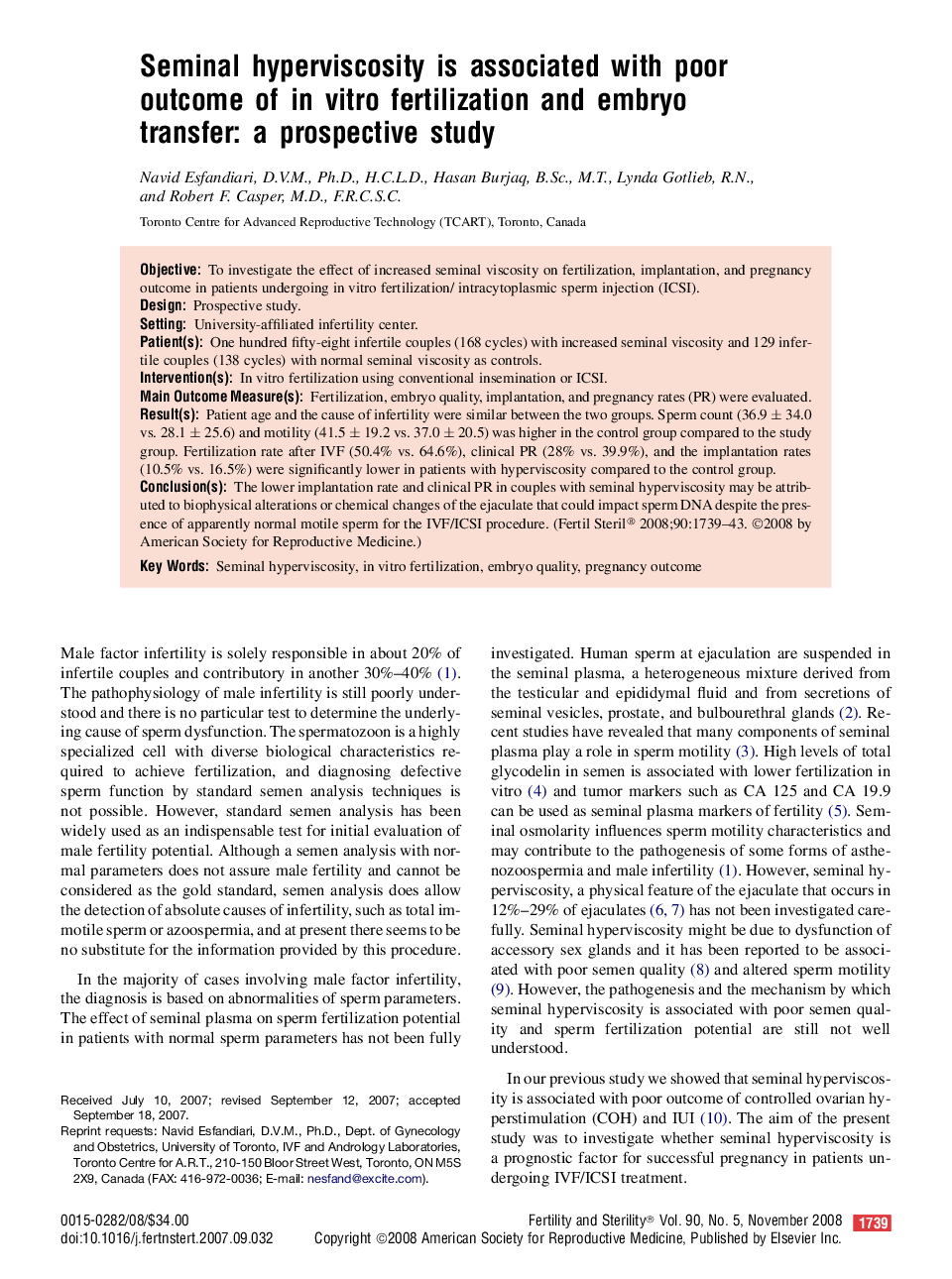| کد مقاله | کد نشریه | سال انتشار | مقاله انگلیسی | نسخه تمام متن |
|---|---|---|---|---|
| 3941615 | 1253617 | 2008 | 5 صفحه PDF | دانلود رایگان |

ObjectiveTo investigate the effect of increased seminal viscosity on fertilization, implantation, and pregnancy outcome in patients undergoing in vitro fertilization/ intracytoplasmic sperm injection (ICSI).DesignProspective study.SettingUniversity-affiliated infertility center.Patient(s)One hundred fifty-eight infertile couples (168 cycles) with increased seminal viscosity and 129 infertile couples (138 cycles) with normal seminal viscosity as controls.Intervention(s)In vitro fertilization using conventional insemination or ICSI.Main Outcome Measure(s)Fertilization, embryo quality, implantation, and pregnancy rates (PR) were evaluated.Result(s)Patient age and the cause of infertility were similar between the two groups. Sperm count (36.9 ± 34.0 vs. 28.1 ± 25.6) and motility (41.5 ± 19.2 vs. 37.0 ± 20.5) was higher in the control group compared to the study group. Fertilization rate after IVF (50.4% vs. 64.6%), clinical PR (28% vs. 39.9%), and the implantation rates (10.5% vs. 16.5%) were significantly lower in patients with hyperviscosity compared to the control group.Conclusion(s)The lower implantation rate and clinical PR in couples with seminal hyperviscosity may be attributed to biophysical alterations or chemical changes of the ejaculate that could impact sperm DNA despite the presence of apparently normal motile sperm for the IVF/ICSI procedure.
Journal: Fertility and Sterility - Volume 90, Issue 5, November 2008, Pages 1739–1743